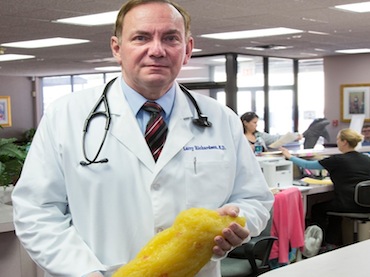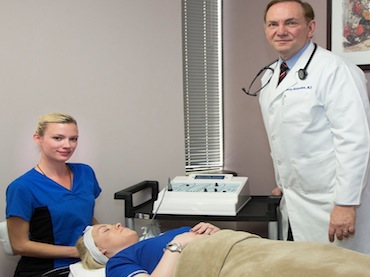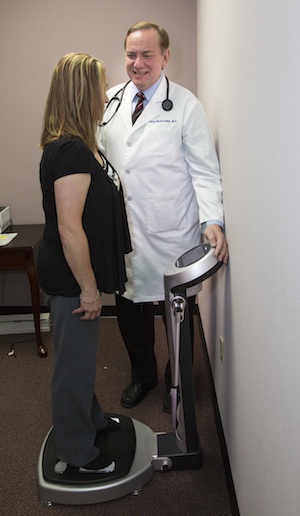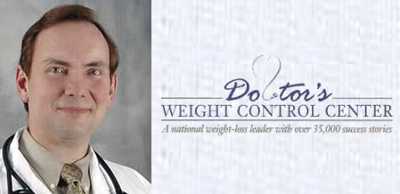- Sections :
- Crime & Public Safety
- Restaurants & Food
- Sports
- More
Local doctor explains weight loss difficulties for women
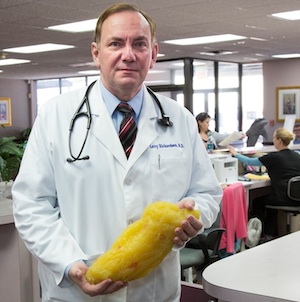
THE WOODLANDS, Texas -- Diet and exercise are the two pillars of weight loss, but many individuals find that no matter how dedicated they are to changing their lifestyle, those stubborn pounds will not come off. A variety of biological factors may be at play to keep the weight on—and it may take a more biologically driven approach to make weight loss possible.
Among Americans age 20 and over in 2013, 155 million were considered overweight or obese by the American Heart Association. A full 78 million of those are obese. Obese americans suffer from an increased risk of heart disease, diabetes and stroke. Among children, the numbers are similarly dire: 23.9 million children age 2 to 19 are overweight or obese, 33 percent of all boys and 30 percent of all girls.
Unfortunately for many, often physiological factors are at work against weight loss and it is important to understand these issues and correct them to allow for a healthy change in lifestyle.
Stressed Out
Hand in hand with diet and exercise is the stress of the American lifestyle. Our always-on 24/7 accountability, stress in our personal lives and even psychological strain all trigger the human body's biological response to stress. This innate fight-or-flight instinct floods the body with the hormone cortisol, as an instinctive response to perceived threats. All that cortisol signals to the body that it needs to slow down the body's metabolism and store glucose for the tough times ahead.
"We see a lot of folks with stressful jobs and lifestyles," says Dr. Larry Richardson, Founder, Doctor's Weight Control Center in Spring, which treats obesity patients ages 18 and up. "Additionally, stress often leads to emotional eating of those comfort foods that might not be the best options. Stress becomes a double-edged sword, and often people with high stress have a tougher time losing weight."
It is important to find ways to reduce stress in order to facilitate weight loss. Under stressful situations, it's common to have trouble sleeping, and sleeplessness causes an increase in cravings and decreases feelings of fullness. Walter considers obesity a chronic disease and Doctor's Weight Control Center treats it with a complete medical work-up that includes BMI and EKG testing, as well as stress-reduction techniques, sleep analysis, nutritional consultation and appetite-suppressing medications. Doctor's Weight Control Center staff members work with patients' general practitioner to create a comprehensive health plan.
Extreme Diets
Similarly, extreme discipline with eating habits can kick in the body's instincts for self-preservation. Individuals who turn to severely restrictive diets—800 calories or less—find that the pounds do not melt away, but persist and even increase. Starvation diets are not scientifically proven, and the body's response to severe limitation is to feel threatened and once again slow the metabolism and store calories.
"Super low-calorie diets can cause a loss of muscle mass that works against efforts to exercise and build up stamina," Dr. Richardson says. "The Center for Disease Control recommends eating lower-calorie versions or smaller amounts of your favorite foods for success. Balance is key when changing your diet and introducing physical activities."
Menopause
"Menopause often causes a tricky convergence of biological effects that cause women to gain weight and keep it on in their post-menopausal years.," Dr. Richardson says. "Menopause combines the unchangeable forces of genetics—the lost muscle mass and decreased aerobic capacity that occurs with aging—with hormone-induced changes."
Menopause brings with it a reduction in estrogen production, and estrogen is key for regulating body weight and metabolism. Lower metabolic rates lead to insulin resistance and many older women find themselves gaining weight and find it harder than ever to lose it. Exercise is key for older women—it helps avoid bone-density loss that can lead to osteoporosis—and it helps burn calories.
While diet and exercise are a simple, easy to remember recipe for weight loss, there are often powerful biological forces at work inside the body. A systemic approach to weight loss must address stress, calorie intake and the hormones that regulate the body's energy stores.
"We have added many medi-spa treatments and services for women to assist in their weight loss goals so as to achieve better health and a higher quality of life," Richardson says.
For more information on Doctor’s Weight Control Center, visit drrichardson.com or call 281.367.0070.

